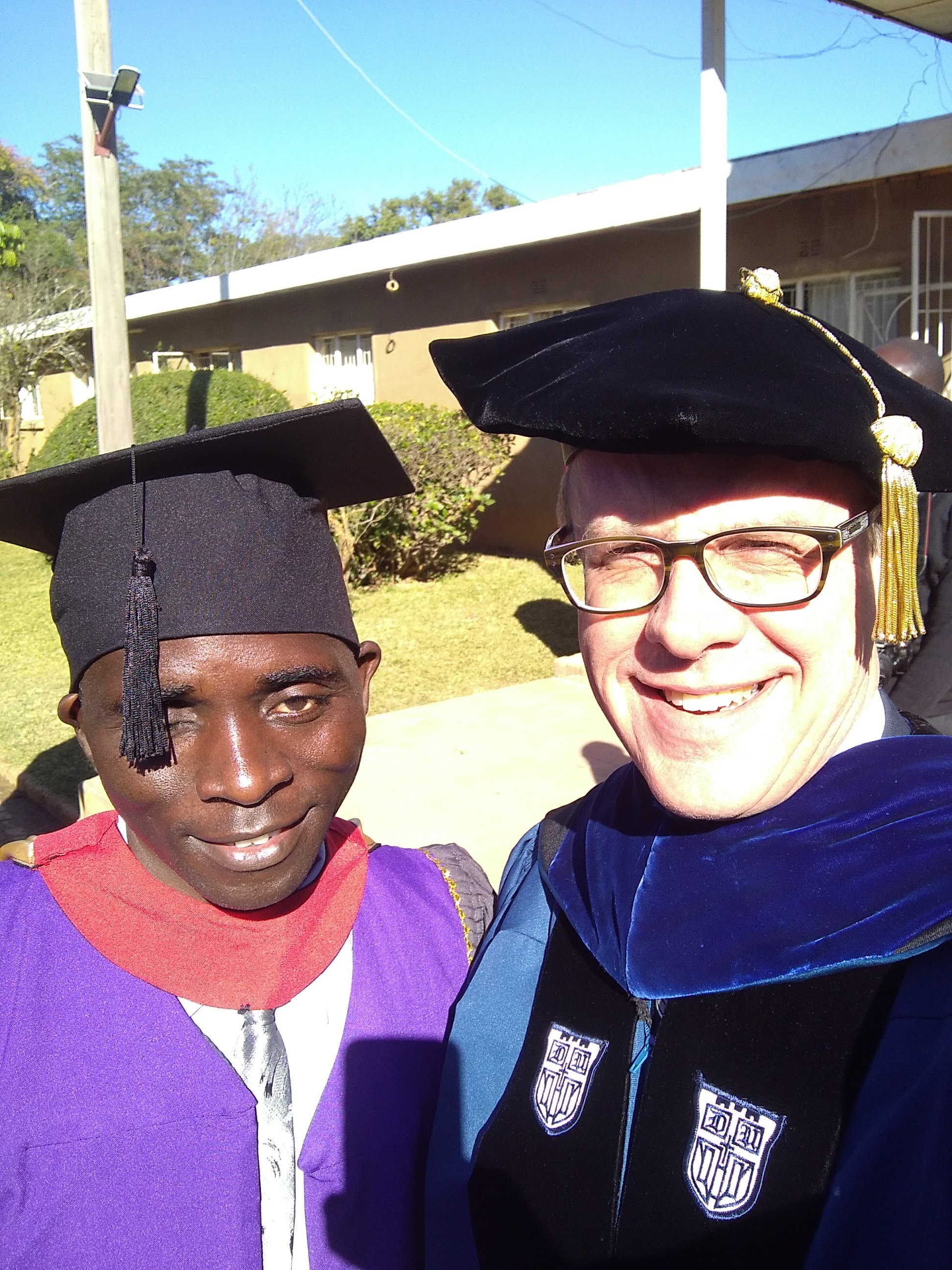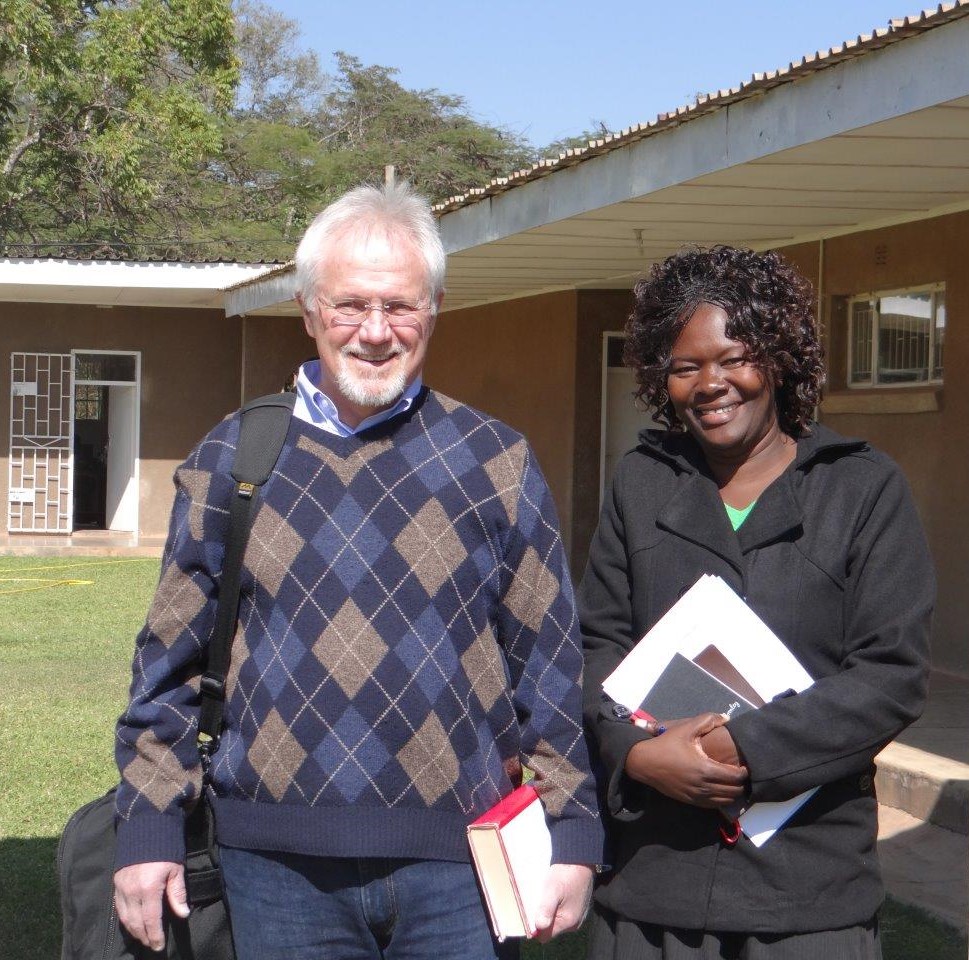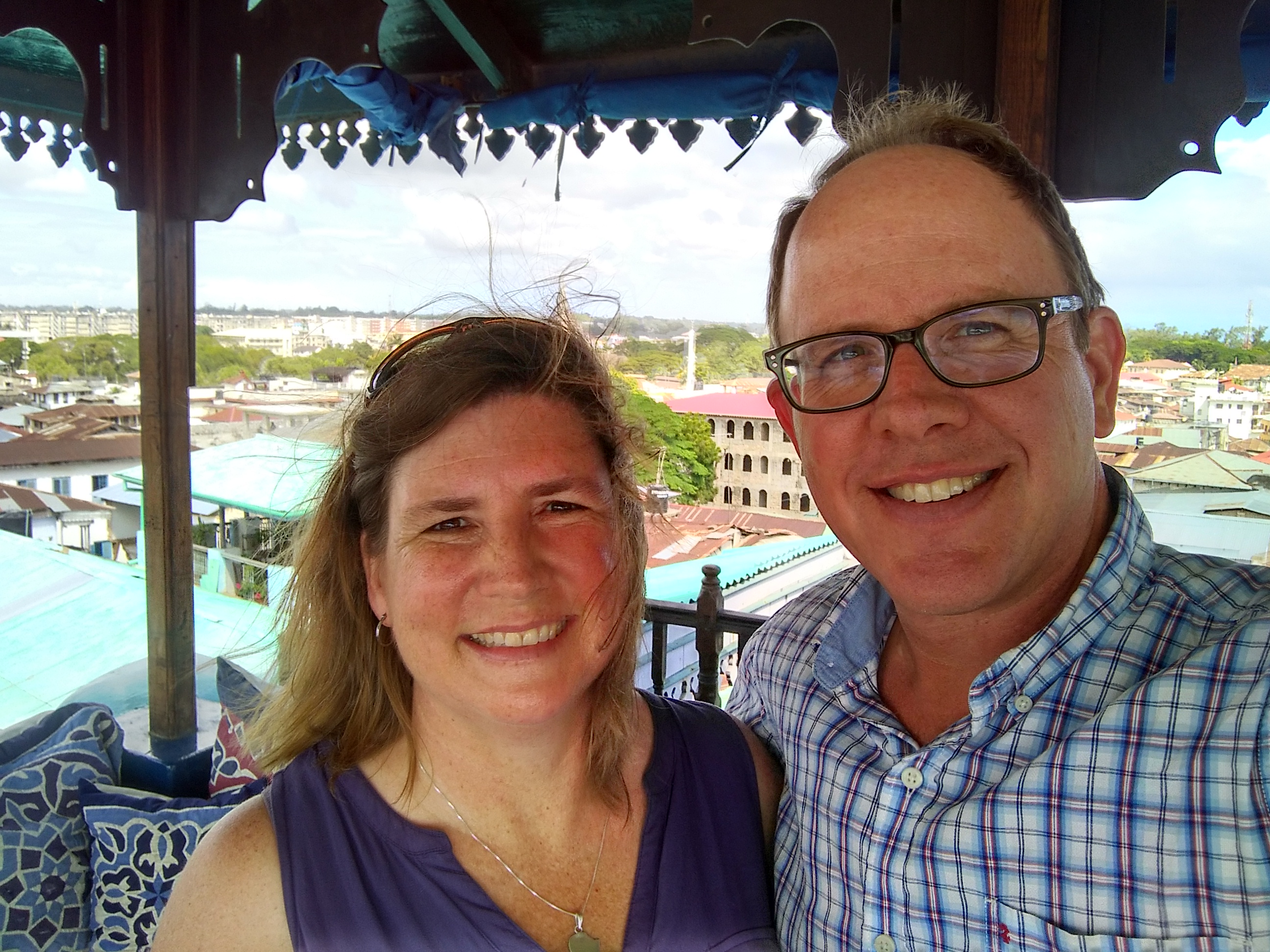A Letter from Dustin and Sherri Ellington, serving in Zambia
Winter, 2021
Write to Dustin Ellington
Write to Sherri Ellington
Individuals: Give online to E200478 for Dustin and Sherri Ellington’s sending and support
Congregations: Give to D507543 for Dustin and Sherri Ellington’s sending and support
Churches are asked to send donations through your congregation’s normal receiving site (this is usually your presbytery)
Subscribe to our co-worker letters
Dear friends,
We usually speak of Justo Mwale University (JMU) as a place for preparing pastors. Indeed, JMU has trained many pastors for seven countries throughout Southern Africa. But additionally, JMU plays a key role in equipping scholars who themselves go on to train pastors in other African theological schools.
For instance, Rev. Bannet Muwowo, whom I advised during his master’s program, now trains pastors himself as the principal at Chasefu Theological College in eastern Zambia. Rev. Agnes Nyirenda Nyondo, who graduated a few years ago, is a new lecturer at the University of Livingstonia’s School of Theology in Malawi. We also have former students teaching in seminaries in Zimbabwe and Mozambique.
One way I’m currently serving future scholars for the church in Africa from here in Pasadena, is through writing. One of my study leave projects is preparing a paper based on what I’ve learned from the past ten years of teaching the Bible in Zambia. It first describes how, in Africa’s theological schools, there’s a longing for biblical interpretation that’s truly African, and allows the Scripture to mean what it means to African communities. This is important for the post-colonial situation and for developing a theology that speaks to the African setting.
When someone says, “The Bible means what it means to our community,” we do need to proceed with care. Our JMU Prof. D.T. Banda has spoken of the problem of “taming” interpretation “within the culture of the interpreter.” Banda claims that one can be a “prisoner” of how one’s own culture “sees.” He affirms that “culture must itself be converted.”Also, if the Bible means whatever it means to our community, Chasefu’s Rev. Muwowo says that, “it would lead to the temptation of using scriptures for self-gain and putting the reader to be in control of the meaning of the text.” He has also warned that the experience of poverty can take control of how we understand the Bible, leading people to think the “prosperity gospel” is biblical.
So the question becomes: How do we encourage interpretations which are truly African, truly contextual, while also allowing Scripture to have its own voice and speak words which surprise and challenge us instead of only saying what our communities want to hear? We need interpretation to be truly contextual and truly biblical, so that what is taught and preached is not only relevant but also true to Scripture and transformational.
My recent paper is about a model for approaching the Bible and teaching interpretation that helps students use the literary context of Scripture so we’re not just hearing our own thoughts and desires when we interpret the Bible. This approach helps students take in more evidence from the text of Scripture, seeing relationships between parts and wholes within passages and books of the Bible. It’s also about empowering students to ask open and in-depth questions both of passages from the Bible and of their own ministry contexts, and then holding the text and their contexts in deeper conversation with one another. The result is that students identify more deeply with the Bible, so they see themselves and their community in and through Scripture.
When Fuller Seminary’s New Testament faculty learned about this writing project, they asked me to share this paper with them. During the resulting discussion they said that, though it was written for Africa, it deals with analogous issues which they, too, are facing: How can a diverse student body interpret the Bible in a way that’s sensitive to diversity while also wrestling with what’s actually written in Scripture?
Fuller later invited the rest of the Faculty of Mission and Theology to read the paper, and some of us met on Zoom for a plenary discussion. Attendees said the paper describes the sort of experiences students everywhere need: opportunities to see what’s really there in the Bible, to really observe how it witnesses to Jesus Christ and the gospel, and to make space for honest and deep conversation between Scripture and diverse and particular backgrounds. These experiences help believers to weave an identity that is genuinely Christian while also being true to their specific background and community. The process seems crucial for thinking through what it means to live life with Scripture and preach the gospel faithfully in diverse contexts.
My hope is that the essay can serve future teachers in Africa who will, in turn, guide how future students handle the Bible.
Please join us in praying not only for Justo Mwale University’s work of preparing pastors, but also for its work of preparing scholars and trainers who will themselves equip future pastors and Christian leaders for Africa. Sherri and I give thanks to God for your prayers and for your support through Presbyterian World Mission which keep us in ministry. To give, please click here.
Always feel free to be in touch; we enjoy hearing from you. We hope to return to Zambia in July.
Yours in Christ,
Dustin and Sherri Ellington
ellingtondustin@gmail.com – Dustin
so.ellington@gmail.com – Sherri
P.S. Presbyterian World Mission would appreciate receiving your email address and sending our letters from them to you. To sign up, please go to https://pcusa.activehosted.com/f/38.
![]() You may freely reuse and distribute this article in its entirety for non-commercial purposes in any medium. Please include author attribution, photography credits, and a link to the original article. This work is licensed under a Creative Commons Attribution-NonCommercial-NoDeratives 4.0 International License.
You may freely reuse and distribute this article in its entirety for non-commercial purposes in any medium. Please include author attribution, photography credits, and a link to the original article. This work is licensed under a Creative Commons Attribution-NonCommercial-NoDeratives 4.0 International License.


